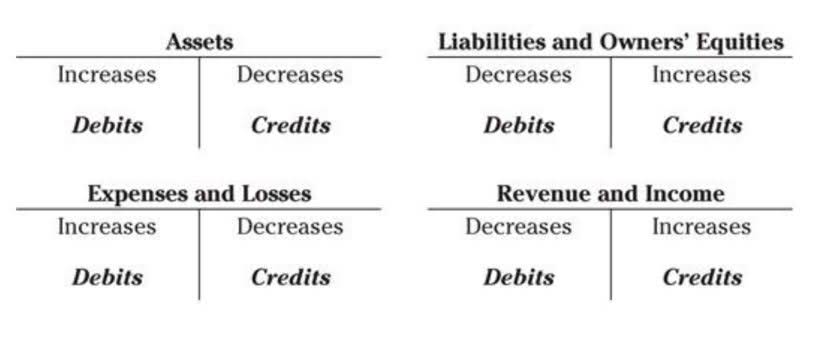
As for the costing system used, production is usually valued with either a standard costing or average costing system. And for a smaller brewery with not much accounting support, it may use a modified system that’s really simple. In short, ending raw materials are valued at their most recent purchase costs, while work in process and finished goods are valued using a standard cost. It’s the area within a brewery where it serves beer to its customers. This can be a seriously profitable area, so it needs separate reporting.

How to Handle Distributor Sales Objections
In practice, those indicators lag far behind real-time performance and are rarely reliable inputs. This means those key decisions are instead made based on gut feel, with some after-the-fact course correction thrown in the mix. The output of this process distills a decade of data and collective wisdom down into clear, actionable recommendations that you and your team can use to make those intelligent, hard, game-changing decisions we speak so highly of. Unlike most brewery consultants, we have a world-class back-office team that ensures the numbers and compliance foundation (bookkeeping, accounting, tax) is solid as a rock. In doing so we’ve identified, refined, and tested a repeatable set of strategies, tools, and processes that work regardless whether you’re brewing deep dark stouts, wacky IPAs, or crisp traditional pilsners. Over the past decade, we’ve had the privilege to work with 100+ craft breweries across the U.S., helping them achieve significant bottom-line improvements while streamlining their operations.
Excise Taxes

We’re based in North Carolina and Wisconsin but with today’s cloud accounting technology, we service clients right across the United States. Beer CPA understands the complexities that come with running a brewery – including regulation, tax and the upfront capital required – and have the expertise to help. We’re members of the Brewer’s Association, the North Carolina Craft Brewers Guild and have built an extensive network of relevant contacts to boost our understanding and help our clients. Maria Pearman, CPA, CGMA, is the Beverage Practice Leader at GHJ, a national advisory and accounting firm. She has more than 15 years of public accounting experience providing accounting and advisory services to clients.
- Our team of strategic advisors will help you develop a plan to keep you on the road to financial success and profitability in today’s constantly changing business environment.
- There are many different types of software available, so it’s important to research the features and benefits of each software before making your decision.
- Most brewery software also integrates with accounting software like QuickBooks or Xero.
- So, it makes a lot of sense to structure the financial statements to show profitability by distribution channel.
Small Batch Standard is the premier financial agency built to serve the craft brewing industry.

Purchases and transactions from the brewery system will be automatically recorded in the accounting solution, so you don’t have to record anything twice. Many accountants are stuck in the old way of operating and still charge their clients based on the number of hours they work. Here at Beer CPA, we know that charging by the hour doesn’t suit small business owners. It gives the accountant the incentive to take longer to complete your work and doesn’t bring value for either party. This means we’ll take the time to get to know you and your business upfront, understand your requirements and needs and then work out a fixed fee that suits your budget. This will ensure you don’t get any nasty surprises at the end of the month and will help you with your cashflow predictions and budgeting as well.
mPower Beverage

Prior to joining GHJ in 2021, Maria built a national practice focused on beverage alcohol clients in Portland, OR. The industry requires the owners to have good working relationships with financing sources, to be innovative and receptive to new brewing techniques, and to have a thorough grasp of cost accounting principles. Learn how thousands of food and beverage businesses are painlessly automating invoices, payments and orders digitally. Using digital invoices makes this process much easier, https://www.bookstime.com/ as they are less prone to errors than physical invoices because the data is entered and processed electronically. There are a number of other advantages to keeping digital invoices; including efficiency, accessibility, environmental friendliness, and security. Any physical documents (invoices/receipts) should be kept organized with digital copies stored as backups – this helps maintain compliance with regulations or other guidelines set forth by local governments or organizations.
Brewery Accounting 101: A Practical Guide for Owners and Operators
Understanding and forecasting your cash flows is critical to ensure a long and prosperous future for your business. Start with a rolling 90-day forecast to ensure you have sufficient operating capital to get through your production, inventory, and AR cycles and extend the forecast horizon as needed to plan for seasonality or downturn. We regularly publish our best insights, extracted from our direct front line experience, feedback, and observation of craft industry. This is not the place for patronizing, feel-good stories, but instead the (sometimes hard) truth owners and operators need to hear. I won’t get into the usual materials and labor and overhead topics, but here are a couple of issues that are unique to breweries.
Tips For Managing Brewery Financials And Accounting Best Practices
For most breweries, the numbers are the “uncomfortable unknown.” Owners rely on the local CPA or the jack-of-all-trades, in-house bookkeeper to prepare the financials they use to make the most meaningful decisions in their business. More than a few breweries, distilleries, and craft beverage producers have decided to act and Turn Pro. A brewery is likely to have a lot of marketing expenses, one of which is somewhat unique to the industry.
- This means having separate accounts for things like kegged beer, packaged beer, growlers, and taproom sales.
- More popular beers can be produced more frequently than underperforming beers.
- They’d be happy to provide a list offree the best brewery software recommendationsthat meet your exact requirements.
- By taking the time to properly set up brewery accounting and automating the accounts receivables process, breweries are able to reduce manual labour and improve accuracy when dealing with large amounts of data.
- The craft beverage team is one of many industry specialty teams that work within Baker Tilly.
The days of sitting around and waiting for a check to show up should be behind you. In an industry where cash is critical, the best accounting departments utilize a wide range of automated AR management and payment collection tools to ensure 100% on-time customer payments. Supply chain brewery accounting unpredictability and frequently changing consumer demands have forced breweries to diversify their product offerings. This requires more regular inventory reconciliation to ensure Days of Inventory (DOI) meets demand and that inventory valuation aligns with the reality of sales.
Reconciling accounts involves comparing the transactions recorded in your accounting system with the actual transactions in your bank and credit card statements. This helps to identify any discrepancies or errors in your accounting records, such as missing transactions, incorrect amounts, or duplicate entries. Join host Chris Farmand as he chats with a guest about the challenges, opportunities, and decisions facing craft practitioners every day across the country.


About The Author
admin